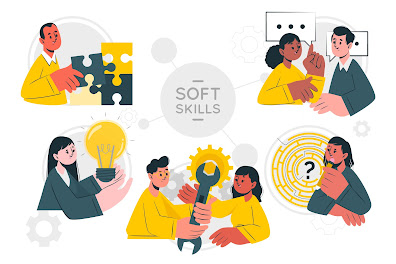10 Reasons Why the Level 3 Certificate in Assessing Vocational Achievement is a Difficult Qualification
The Level 3 Certificate in Assessing Vocational Achievement (CAVA) is a widely recognized qualification in the UK that equips individuals to assess vocational qualifications. While this certification is valuable for career development, it is also known for its rigorous demands. This article explores ten reasons why the Level 3 CAVA can be challenging for many candidates.
1. Complex Assessment Criteria
Understanding and Applying Standards
One of the primary difficulties with the Level 3 CAVA is mastering the complex assessment criteria. Candidates must demonstrate their ability to assess vocational qualifications according to specific standards. This requires a deep understanding of assessment principles and the ability to apply these principles effectively in real-world scenarios.
Why is understanding assessment criteria challenging?
Candidates often find it difficult to interpret and apply complex assessment standards consistently. The criteria are detailed and require precise execution, which can be overwhelming for those new to the role.
2. Diverse Assessment Methods
Multiple Approaches to Assessing Learners
The qualification requires the use of various assessment methods, including observations, questioning, and reviewing evidence. Each method has its own set of best practices and challenges.
How do diverse methods impact candidates?
Adapting to different assessment methods and applying them effectively can be challenging. It requires versatility and a thorough understanding of each method’s strengths and limitations.
3. Detailed Record Keeping
Accurate and Comprehensive Documentation
Candidates must maintain detailed records of their assessments, including evidence, feedback, and decisions. This record-keeping is crucial for compliance and quality assurance but can be time-consuming and meticulous.
Why is record keeping so difficult?*
Maintaining accurate and comprehensive records requires attention to detail and organizational skills. The volume of documentation can become overwhelming, especially when managing multiple assessments.
4. Requirement for Real-World Experience
Practical Experience in Assessing
To achieve the Level 3 CAVA, candidates must have practical experience in assessing vocational achievements. This real-world experience is essential but can be hard to acquire if one does not have access to relevant assessment opportunities.
How does lack of experience affect candidates?**
Candidates with limited practical experience may struggle to apply theoretical knowledge effectively. Gaining adequate assessment experience often requires finding suitable placements or opportunities.
5. **High Standard of Professionalism**
Meeting Industry Expectations
The Level 3 CAVA demands a high standard of professionalism. Candidates must demonstrate integrity, objectivity, and fairness in their assessments. Meeting these expectations consistently can be a significant challenge.
Why is professionalism a challenge?
Maintaining a high level of professionalism involves more than just adhering to guidelines; it requires a commitment to ethical practices and continual self-assessment. Balancing these expectations with daily responsibilities can be difficult.
6. **Balancing Theory and Practice
Integrating Knowledge with Application
The qualification encompasses both theoretical knowledge and practical application. Candidates must not only understand assessment theories but also apply them effectively in practice.
How does balancing theory and practice impact candidates?
Integrating theoretical concepts with practical skills can be complex. Candidates often struggle to bridge the gap between classroom learning and real-world application.
7. **Rigorous Assessment Procedures**
Passing Multiple Assessments
To complete the Level 3 CAVA, candidates must pass several assessments, including assignments, practical assessments, and a professional discussion. Each assessment evaluates different competencies, adding to the overall difficulty.
Why are multiple assessments challenging?
Managing and succeeding in multiple assessments requires extensive preparation and time management. Each assessment has specific requirements, increasing the complexity of achieving the qualification.
8. Continuous Professional Development
Staying Updated with Changes
Assessors are expected to engage in continuous professional development (CPD) to stay updated with changes in assessment practices and vocational qualifications. This ongoing requirement can be demanding.
How does CPD affect candidates?
Keeping up with CPD involves additional time and effort, which can be challenging for those already balancing a busy work schedule. Staying current with industry changes is essential but requires dedication.
9. Adapting to Different Learner Needs
Customizing Assessment Approaches
The Level 3 CAVA involves assessing learners with diverse needs and backgrounds. Adapting assessment methods to cater to individual differences can be difficult.
Why is adapting to different learner needs a challenge?
Assessors must be flexible and creative in their approach to accommodate various learner needs. This adaptability requires significant skill and experience, which can be challenging to develop.
10. Maintaining Objectivity
Ensuring Fair and Unbiased Assessments
Maintaining objectivity in assessments is crucial to ensure fairness. Assessors must avoid biases and make impartial decisions based on evidence.
How does maintaining objectivity impact candidates?
Ensuring fairness in assessments requires constant self-awareness and adherence to ethical standards. This can be challenging, especially when personal biases or external pressures come into play.
Conclusion
The Level 3 Certificate in Assessing Vocational Achievement is a demanding qualification due to its complex requirements, diverse assessment methods, and the need for extensive practical experience. Candidates must navigate rigorous assessment procedures, maintain high standards of professionalism, and continuously develop their skills. While challenging, successfully obtaining this qualification can significantly enhance one's career in vocational assessment, leading to greater opportunities and professional growth. Understanding these challenges can help prospective candidates prepare more effectively and approach the qualification with a clearer perspective.

.jpg)


Comments
Post a Comment